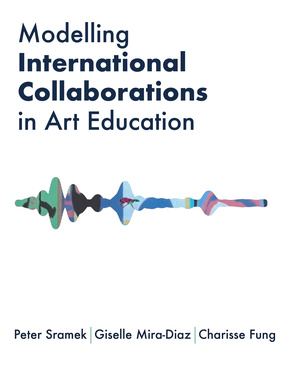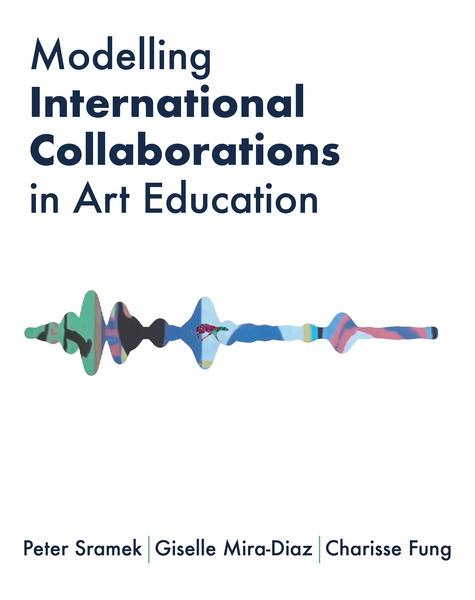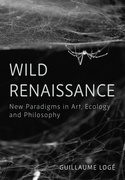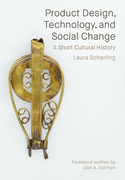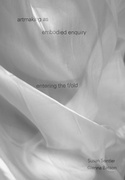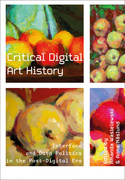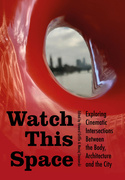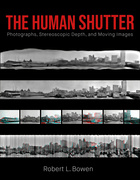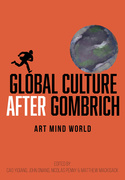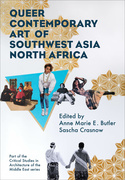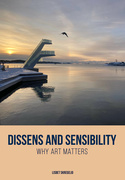Modelling International Collaborations in Art Education (Book)
Explores online and in-person collaboration as a means of international experience for university art students. Based on a decade of experience, pedagogical and methodological topics are illustrated with student projects, inspiring reflection on teaching and artmaking strategies in online spaces, across cultures and languages.
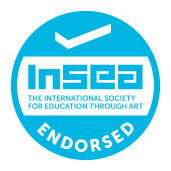
Edition
Based on over a decade of collective teaching, this volume explores the hybrid use of online and in-person collaboration as a means of offering international experience to university-level arts students. Chapters articulate a collective learning based on the experiences of the International Art Collaborations Network (INTAC), Collective Body group and related programs which the authors and contributors have participated in as educators and students.
Illustrated with photographs, screenshots and student projects, the book inspires reflection on teaching methodologies and student artmaking strategies across cultures and languages. Pedagogical and methodological topics trace an evolution of curricular approaches and use of evolving online platforms. Examples of themes and visual strategies demonstrate the power of student-directed collaborative learning. Diverse voices have been gathered through research conducted with educators and alumni connected to INTAC, providing perspectives on working collaboratively in a global context.
Student projects exemplify responses to the challenges of communication and creation that come with distanced artistic partnership. Chapters end with suggested points for conversation, whether between educators, students of art education or students entering collaborations. Although based on experiences in the visual arts, the ideas and methods are applicable to others engaging in inter-institutional education or online collaborative practices.
Fully illustrated with examples of collaborative art projects, photographs, screenshots, diagrams and posters.
Peter Sramek is a visual artist with a practice in photography and book arts and as Professor at OCAD University in Canada (now emeritus), he has worked to develop innovative curriculum in the arts over more than four decades. Since 2010, development of the International Art Collaborations network has been a key focus for his ongoing efforts to expand experiential and cross-cultural learning opportunities for students. His book, ‘Piercing Time: Paris After Marville and Atget 1865–2012’ is published by Intellect Books.
Giselle Mira-Diaz is an artist and art educator based in Chicago, USA. She participated in INTAC from 2015–17 while at OCAD University and throughout her master’s research in Art Education at School of the Art Institute of Chicago (2017–19, MAAE). Today she is part of the INTAC team as the Archive Project Analyst, active throughout the research for this book along with being co-facilitator for the INTAC Sustainability Jams 2022 and 2023. Giselle is currently completing an MFA in Photography at Columbia College Chicago where she is the 2023 recipient of the Stuart Abelson Graduate Research Fellowship and working as an Education Assistant at the Museum of Contemporary Photography. Her main artistic and research interest is the use of audio, film and photography to document and create a living archive of oral histories from marginalized communities who have traditionally been erased through migration or displacement.
Charisse Fung is an INTAC alumna who participated in collaborative projects from 2018–2021 at OCAD University, joining the INTAC Archive Project Team as Project Archivist and Research Assistant, working on the development of this book and as co-facilitator for the INTAC IORE Sustainability Jam 2022. Charisse is a curator, artist, and archivist from Hong Kong (and now Canada) with a passion for meaningful connection and collaboration that manifests in projects centring on storytelling, visibility and kinship. She has worked with various arts organizations, including the Toronto Reel Asian International Film Festival.
Acknowledgements
About this Book
- Introduction
Circles of Engagement
A Brief History
Finding Possibilities
Developing a Programme
Reviewing the Decade
- Why International? Why Collaboration?
The Importance of Global Connections
Situating the International in Art Education
Cultural Diversity and Global Awareness
Collaboration as a Key
‘Catalyzing Change’
Dr. Juha Suonpää, TAMK (Finland)
Questions and Challenges (2)
- Discovering Collaborative Practices
Enabling Interaction
Coming to Collaboration
‘Contemporary and Historical Models: Virtual art collaborations, artistic collectives, and exchanges across borders’
Giselle Mira-Diaz (INTAC)
‘Collective Body 2008–2020’
Prof. Patricia Azevedo UFMG (Brasíl) and
Prof. Clare Charnley LBU (UK)
Questions and Challenges (3)
- Setting the Stage
Key Ground Rules
Preparing Students for Collaboration
Modes of Speaking
Facilitation: Following the student process
Questions and Challenges (4)
- Collaborative Programme Models
Organic Networking
Short-Term Projects
Intensives
Workshop Travel
Extending Engagements
The INTAC Model
Shared Events
Questions and Challenges (5)
- Pedagogy and Educators
A Broader Conception of Teaching
Enabling Student Experience
Why do faculty do it?
‘Why INTAC Participants DO Activate their Cameras?: The Importance of Collaboration in Emancipatory Education’
Prof. Sofía Sienra Chaves, UAEMex (Mexico)
‘Trusting the Process’
Prof. Meera Margaret Singh, OCADU (Canada)
‘poetry of transience’
Prof. Walter Bergmoser, UE (Germany)
Questions and Challenges (6)
- Addressing Institutional Contexts
Institutional Support
Barriers
Inter-institutional Territories
Complex Diversity
Working with Matched Partnerships
Questions and Challenges (7)
- Engaging Global Themes
Defining Thematics
Arriving at Meaningful Projects
Global Themes
‘Let’s think about the journey of bananas’
Phuong Hoang, RMIT (Vietnam) / UE (Germany)
Questions and Challenges (8)
- Bridging Diverse Contexts
How Different is Difference?
Understanding Difference
Working Across Languages
Visual Language
Diverse Learning Environments
Building Bridges
Considerations of travel
‘Metaverse & INTAC: The Dilemma & Breakthrough of Chinese Students’
Dr. Liu Fan, WTU (China)
‘Art Over Language’
Prof. Silas Fong, CAU (South Korea)
Questions and Challenges (9)
- The Dynamics of the Student Experience
Student Voices
Motivations
Challenges for Collaboration
Alumni Recommendations
Learning Outcomes
Alumni Interviews
Participant Manifesto: Ground Rules
for Collaborators
Questions and Challenges (10)
- Student Collaboration in Practice
Approaches to Collaborative Artmaking
Experiments in a Digital World
Collaborative Strategies
The Physical–Virtual Interface
- Collective Body Projects: 2008–20
Threads Between Partners
‘Second on the Right and Keep on Going…’
Prof. Patricia Azevedo, UFMG (Brasil) and
Prof. Clare Charnley, LBU (UK)
- Face-to-Face
The Impact of Meeting
Exhibitions
Workshops and Debriefing Sessions
Social and Cultural Activities
- Online Exhibition
Inhabiting the Online Space
Transitioning to Virtual Presentation
Animating the Virtual Exhibition Experience
INTAC on Kunstmatrix.com
- Activating the Online Space
A Decade of Evolving Online Options
Meaningful Virtual Interaction
Negotiating Online Platforms
Selecting Workspaces
Platform Options
Acceptance of Online Platforms
Ensuring Dynamic Online Spaces
Online Activities
Student Agency in Online Channels
The Question of Visibility
It’s about the communication
Questions and Challenges (15)
- Modelling the Future
An Expanded Vision
A Sustainable Scenario
Expanding Collaborative Networks
Questions and Challenges (16)
Appendices
Appendix A – Key Alumni Survey Data
Appendix B – Chronologies
Partners
Notes on Authors and Contributors
List of Figures
Index

